| The happier my life’s become, the less inclined I feel to take a holiday. Why go to the trouble of packing a suitcase – or worse, boarding a plane – when you’ve got (almost) all you want at home? Five nights’ in Cumbria seeing friends and family, and researching my possibly third novel, back in April, have furnished a perfectly adequate change of scene for this year, along with a three-day non-residential music course next week. |
Welcome
I started this blog in 2013 to share my reflections on reading, writing and psychology, along with my journey to become a published novelist. I soon graduated to about twenty book reviews a month and a weekly 99-word story. Ten years later, I've transferred my writing / publication updates to my new website but will continue here with occasional reviews and flash fiction pieces, and maybe the odd personal post.
|
12 Comments
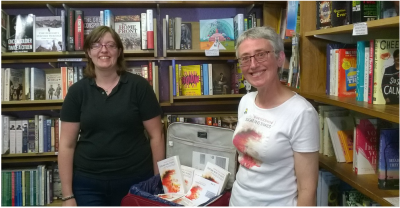 at Bakewell bookshop last month at Bakewell bookshop last month As I’ve been out and about talking about my novel, I’ve been surprised to meet – in stark contrast to the predominant aversion to spoilers – a couple of people who like to look at the ending, perhaps the last couple of paragraphs, before turning to the first page. Now, I like the ending of Sugar and Snails, although it’s been suggested that some might find the issues insufficiently resolved. (I do get asked if I’m planning to write a sequel!) Because it tells of a destination rather than the journey, I don’t think reading it in advance would constitute a spoiler (although, prattling on at one talk about how I was pleased with the ending, I did have a friend tell me afterwards she thought my ending wrapped things up too much).  The coincidence of Charli Mills’s latest post on the loss of a secure base with the buzz about the bicentenary of Charlotte Brontë’s birth later this month (more on both later in this post) reminded me of this piece on fear as a motivator that has languished in my drafts folder for well over a year. I’m a great fan of Emma Darwin’s posts on writing because, while they’re stuffed with useful advice, she never pretends there’s a simple formula (or two or three or two hundred and three) to make our novels novel and our sentences sing. That’s not the case in some other corners of the creative writing industry. As I’ve mentioned before, I’m particularly hacked off by an implicit assumption that the classic quest underlies each and every story structure: we just have to decide what our hero wants and thwart him in his journey to find it. While I can see how that works for some fiction, lots of the novels I read and love don’t go down that route. On top of that, human motivation is a complex construct: some people genuinely don’t know what they want and some are far too passive to follow their dreams. Some are constrained by circumstances or demons from the past and some characters sabotage their own desires. 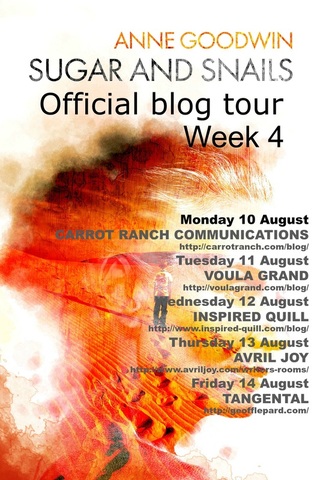 It’s been another hectic week on the blog tour: sharing the novels that have helped me find a mind of my own with Urszula Humienik; examining how contemporary novels feature scientific research with Gargi Mehra; talking attachment with Safia Moore stemming from my character’s difficulty in “telling a story about when you were a little girl”; confessing and commiserating with Clare O’Dea regarding our shared difficulty in articulating what our novel’s about; to come to port on Friday with Lori Schafer to address the question of how much my novel might be autobiographical. After my weekend in a virtual California, I’m heading northward today to join lead buckaroo, Charli Mills on her fabulous Carrot Ranch in Idaho. She’d already set my place at the table with this lovely introduction on her blog. I’m heading back to the UK for the rest of the week, stopping off first with novelist and psychologist Voula Grand, who was the first to feature in my series Psychologists Write, to explore a shared interest in transgenerational trauma, both on and off the page. Then it’s a second guest post (the first, on Day One of the tour, being on debuting as an older author) with my publishers, Inspired Quill, to reveal my responses to the thoughtful questions put to me by one of the team, Hannah Drury. With all this travelling I wonder if I’ll have time to tidy up before Thursday, when I’ll be showing everyone around my Writers’ Room, courtesy of novelist, former prison governor and Costa Short Story Award winner, Avril Joy. Friday, I’ll be hot-footing it to London to join novelist, blogging addict and reader of an early version of Sugar and Snails, Geoff LePard, for a post on how walking facilitates my writing with, hopefully, a few photographs of the walk that features in my novel. (Yikes, did he realise that’s the day he launches his second novel, My Father and Other Liars, or is his attention to me an excuse to avoid a launch party?) Stuck in a rut? Love and Fallout by Kathryn Simmonds and a triple flash for not-quite NaNoWriMo2/11/2014 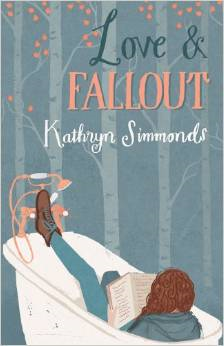 Through most of the 1980s and 1990s a women’s peace camp was held outside the RAF base at Greenham Common to protest against the siting of nuclear missiles there. Thousands of women joined the camp for anything between a single day and several years, making it an important part of recent British sociopolitical history yet, apart from one as-yet-unpublished novel on the theme, Kathryn Simmonds’ debut is the first fictional account of the movement I’ve come across. Tessa is nineteen and fleeing a dead-end job and the humiliation of being dumped by her boyfriend when she packs her rucksack and sets off for Berkshire. Idealistic and naive, only her friendship with the aristocratic beauty, Rori, sustains her through those first few weeks of mud and cold and songs around the campfire, eventually culminating in a spell in prison. Fast forward thirty years and Tessa is the manager of a struggling charity, at loggerheads with her teenage daughter and, along with husband Pete, going through the motions of marital therapy when a friend, Maggie, nominates her to take part in a TV makeover programme. Initially reluctant, she agrees to the filming as publicity for one of her “causes”, but when the producer wants to focus on the “Greenham angle”, the memories from that late adolescent rite of passage come flooding back. 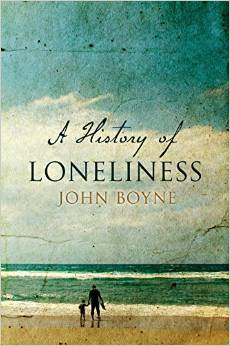 I’d come across John Boyne’s writing in the form of his bestselling novel for younger readers, The Boy in the Striped Pyjamas, a clever tale of friendship across the concentration-camp barbed-wire, but I’d never read any of his novels for adults. Like another Irish writer whose novel I reviewed recently, his most recent book is his fifteenth. But A History of Loneliness doesn’t read like the work of someone who’s exhausted their creativity. This is a powerful, thought-provoking and deeply disturbing novel about human limitations and the disastrous institutions we limited humans create. Odran Yates is an ordinary well-meaning young man of no great ambition, who believes he is dedicating his life to the good when he enters a Dublin seminary to train for the priesthood. While some of his peers struggle to adapt to a life of sexual denial he, apart from one brief interlude, feels he is well suited to his role. But, as Irish culture evolves over the following four decades, and the extent of sexual abuse within the Catholic Church is eventually revealed, his moral courage is put to the test. How far Odran, and others like him, is guilty by association, by turning a blind eye to the clues that speak volumes to the informed reader, is one of the central questions of the novel. The quote attributed to fellow Irishman, Edmund Burke, a good two centuries previously, comes readily to mind: All that is necessary for the triumph of evil is that good men do nothing. 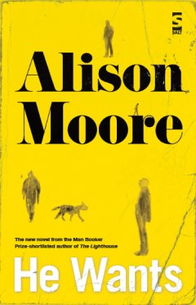 One of the signifiers of good fiction is the early clarification of what the main characters want and sending them on a journey where they will be continually thwarted in their search to get it, right? With each of the seventeen chapter titles flagging up something the characters either want or don’t want, Alison Moore, in her second novel, seems on the surface to have taken this to heart. Lewis, doesn’t want soup or sausages but, when he was a child, he wanted to go to the moon. Sydney wanted to live in Australia. Lawrence wants a CD of The Messiah. But Alison Moore is too sophisticated a writer to churn out a formulaic quest story. He Wants is populated by people who singularly fail to pursue their desires, or even to know what they are. Lawrence, an elderly resident of a nursing home, eagerly accepts the staff’s offers of tea, even when he already has one going cold on his lap. Lewis, his son, a retired RE teacher, eats the soup he does not want that is delivered each day by his daughter. Sydney, the childhood friend who mysteriously disappeared, wants to meet Lewis’s daughter but Barry Bolton gets in the way. Yet, despite their passivity, the reader can’t help rooting for these characters as it gradually dawns on us how, for most of his adult life, Lewis has wanted something he could never bear to acknowledge.  There’s lots of advice for writers on overcoming the internal barriers to making space for our writing, but I haven't found much on creating characters who similarly sabotage their own pursuit of their goals. Generally, we’re encouraged to create protagonists with clearly defined aims who go all-out to achieve them, although novelists who subvert this can still deliver a page-turning tale. Tied in with my latest debut novelist Q&A I’ve been considering the character of Iosif in Anthea Nicholson’s The Banner of the Passing Clouds. His internal obstacle to happiness feels so real to him, it has a physical presence and a fear-inspiring name. Iosif is defined by his inner Stalin, compelled to appease him even as he wrestles against him. He cannot find fulfilment while this moustachioed squatter taps on his ribs, churns his bowels and steals his voice.  How do you maintain your readers’ investment in your story, keep them rooting for your characters right through to the end? As Juliet O’Callaghan outlined in a blog post a few months ago, teachers of creative writing tell us it’s all down to motivation. The writer’s task is to clarify right from the start what the protagonist wants and devise credible ways of stopping them from getting it until almost the last page. While I can see how this can create tension, I’ve always had a problem applying this “rule” to my writing. My characters refuse to sum up what they’re aiming for in a neat sound-bite and, if they do, they shoot off in the opposite direction a couple of chapters later. I could try reining them in, but they’d only start complaining that I was the one who invited them to act as if they were as quirky and contradictory as real people. In real life, our goals are often fuzzy, especially regarding the things that matter most, and, even if we think we know what we want, we’re often quite haphazard in the way we try to achieve it. Who can show me how to take my characters along an obstacle course that will satisfy the reader without compromising on the complexity of human motivation? It turns out there are some excellent models in the novels I’ve been reading for my interviews with debut authors.
Let’s start with Alys, Always, the foundation for my latest Q&A with author Harriet Lane. What Frances wants is uncertain at the beginning and is gradually shaped by circumstance. Later, when she develops her plan, the details are withheld from the reader. The tension arises, not from following her along a clear path, but from wondering exactly where she’s heading and how far she’s prepared to go. Here’s what the author told me about this apparent subversion of the motivation ideal: |
entertaining fiction about identity, mental health and social justice
Annecdotal is where real life brushes up against the fictional.
Annecdotist is the blogging persona of Anne Goodwin:
reader, writer, slug-slayer, tramper of moors, recovering psychologist, struggling soprano, author of three fiction books. LATEST POSTS HERE
I don't post to a schedule, but average around ten reviews a month (see here for an alphabetical list), some linked to a weekly flash fiction, plus posts on my WIPs and published books. Your comments are welcome any time any where. Get new posts direct to your inbox ...
or click here …
Popular posts
Categories/Tags
All
Archives
March 2024
BLOGGING COMMUNITIES
|



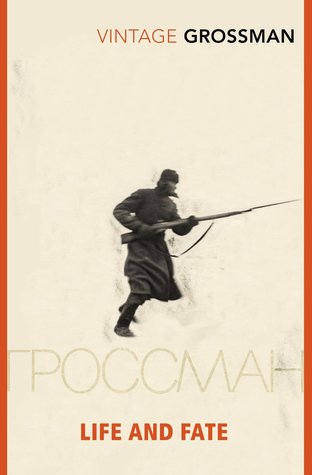
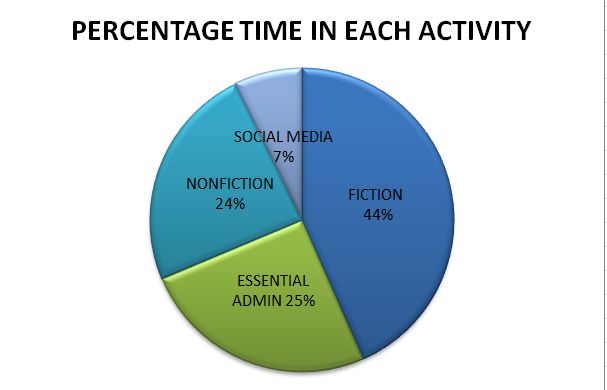























 RSS Feed
RSS Feed





















